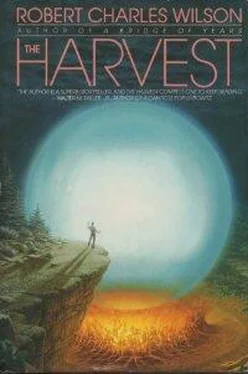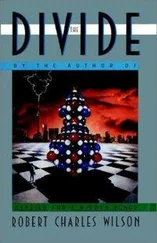She believed in flight. She was not sure she believed in the invulnerability of engine parts manufactured by sweaty men in a Pratt Whitney factory.
But then the wheels lifted from the runway… and she was flying.
The DC-8 rose with the prompt efficiency of an elevator. The ground simply dropped away at an angle that seemed to Rosa precipitously steep… She couldn’t help imagining the DC-8 as if on a hill, stalling and rolling backward.
Her hands began to sweat. She wiped them on her skirt.
There was a knot of excitement in her stomach. I’m flying, she told herself. This is the real thing; I am true-to-God FLYING. She gazed at Los Angeles below her, its gridwork vanishing into a gray diffusion of smog. The aircraft tilted and seemed to rotate around the point of the wing as it banked over the Pacific. Rosa’s parents read magazines. Incredible, she thought. Her mother read Redbook. Her father read Time. As if they were in some dentist’s waiting room! Not a metal cylinder high above the ocean!
The airplane circled as it rose until it was high and heading east.
A stewardess offered soft drinks. Rosa said, “No, thank you.” The knot of excitement in her stomach had become… something else.
She felt flushed and hot and unwell. Her eyes crept to the window and back again. If she didn’t look at the window, she wouldn’t see the ground. Wouldn’t be reminded of their astonishing height. Of the distance the plane would fall, if it fell.
But I’m FLYING!
But she wasn’t. She was just sitting here, strapped in. Helpless! In a metal box, suspended above the San Gabriel Mountains by the clumsy rotation of a few greasy turbofans.
It might be flying… but it felt more like risking her life.
The aircraft lurched in a pocket of air, and Rosa gasped and tightened her grip on the armrest.
Her mother glanced over. “Are you all right, dear? You look pale.”
“I think—” She swallowed hard. She couldn’t decide what was worse: the fear, the humiliation, or the disappointment. A dreadful lump had formed in her throat. “How long is the flight?”
“Five hours. More or less.”
Five hours? Could these engines really operate for five hours? Full of volatile jet fuel? Revolving at God-knows-what velocity? Bearings hot as griddles? Metal fatigue tearing at the fuselage?
She glimpsed mountains down below. Clouds. And an impossible volume of empty air.
“Rosa?” Her mother again. “Dear, what’s the matter?”
“God’s sake,” she heard her father say. “Give her the goddamn paper bag. That’s what it’s there for.”
* * *
She traded in her return ticket and rode a bus back to California.
The trip was long, uncomfortable, and depressing. Every inch of highway under the wheels was a confession of failure. She spoke to no one. She focused her eyes on the horizon, the uneasy intersection of Earth and sky.
Home, she registered at UCLA. Midway through the fall semester she met a B. A. student named Vincent Connor who drove all thoughts of flight and recrimination from her mind. Vince was a farmboy, gauche and handsome. He came from Wyoming, his daddy was a sheep rancher there, but to Rosa’s glazed and grateful eye he was something out of the Broadway musical Oklahoma!: a sweet, big-boned blond man in a checkerboard cotton shirt. At any moment, Rosa thought, he might break into song.
She married him in the spring and became Rosa Perry Connor. Five of his cousins, brave about airplanes, flew in from Wyoming with his widowed father. The church was full. Her twin nieces, four years old, her brother’s girls, carried Rosa’s train. After the reception Vince began their honeymoon drive to San Francisco; they spent a night at a motel on Highway One where the sea fog came winding through the pines. They made love for the first time as man and wife, which seemed to inject a new vigor into the act. Rosa called him Cowboy, and he grinned.
After that—
Years later, she would wonder at how fast the time had passed. Vince took a series of jobs, one of them with her father’s electronics firm in Orange County. Briefly, Rosa was thrust into the garden-party and country-club circle she had despised as a girl. She wasn’t good at it. Vince was worse. He didn’t know how to dress. At parties, he told coarse jokes or refused to say anything at all. “He has ‘Wyoming’ stamped on his forehead,” a friend told Rosa, “and it’s fucking indelible.” Vince had dreams of opening his own business, but he couldn’t manage to save any money. He began to drink too much. So did Rosa. Her garden parties became haphazard affairs, at which she was liable to sit cross-legged on the patio steps indulging her old Fokker fantasy. Watch out, girls, it’s the Red Baroness. Airsick bags provided for your comfort on the seatback.
When his father died, Vincent drove her across the desert to Wyoming, which Rosa regarded as a hostile alien planet. To her horror, Vince had decided to take over the family ranch.
“You’ll get used to it,” he told her, not much interested in her objections. “It’s not so bad here.”
But it was. It was a huge, lonely land full of bellicose men and submissive women. Rosa did nothing but cook meals, keep house, and watch TV. Vince wasn’t keen on children, he said, and neither was Rosa—she thought about a pregnancy just to relieve the boredom, but never seriously enough to skip her pills. And yet, Rosa thought, for all the tedium, my God, how the years flew! Crackling cold winters, muddy springs, summers so dry her small garden plots inevitably failed before autumn. Seasons and seasons of network television. She drove into Cheyenne with Vince sometimes, but good lord, Cheyenne? The last refuge of the bolo tie?
Her life became eventless, as smooth as the eastern horizon, and worse… somehow, her life passed. It eroded. She grew old. Yes, old. She was forty in Wyoming, and how had that happened? Then forty-five. Then, oh, Christ, fifty. Fifty years old on a sheep ranch in Wyoming!
She was fifty-one when the Artifact appeared in the sky like an ivory moon.
Rosa wasn’t frightened of it, not even in the beginning. Vince thought it portended the end of the world. Maybe it did. Nevertheless, Rosa liked it. She liked its glide, smooth and effortless in the dark. It was flight as she had once imagined flight to be.
And didn’t that stir some old memories?
She was more earthbound now than ever, of course, chained to this vast acreage of prairie. Chained to Vince. And she had put on weight over the years, a considerable poundage: her girlish walk had become a waddle. The revenge of gravity, Rosa thought. What was weight but the measure of her bondage to the Earth?
Then, the next summer, like everyone else, she came down with Contact flu… and woke to the realization that her life had been only a prologue.
Vince submitted to Contact just as readily, which surprised her. Vince had seemed satisfied with his life in Wyoming. The ranch had prospered under his supervision, and he seemed happy enough. Vince, after all, had never wanted to fly.
But Vince was suddenly eager for the Golden Age to commence, happy to drop his stolid Marlboro Man exterior and plunge into the fluid deeps of the Greater World.
After Contact she felt closer to Vince but at the same time more distant. She was able to appreciate the shape of his life, the spikes of pride and canyons of ambition that had driven him to California and back. There was even a broad, pastel bump of affection that comprised his feelings for Rosa, a pleasant discovery.
But she could see, too, that their connection had been arbitrary and accidental. Their love had peaked in a motel on Highway One, and what persisted was fondness, at best; boredom, at worst.
Читать дальше












